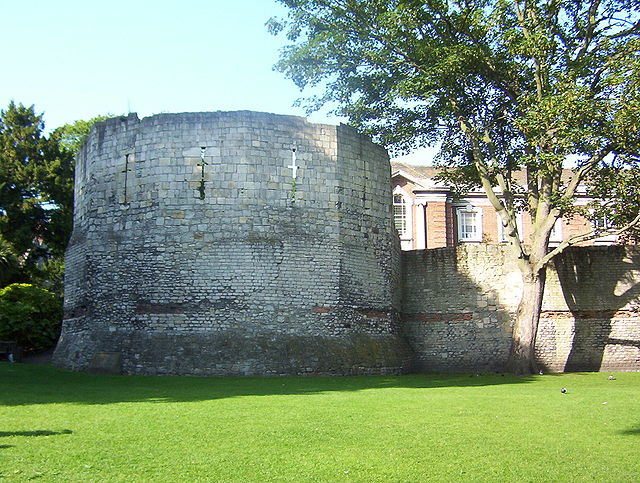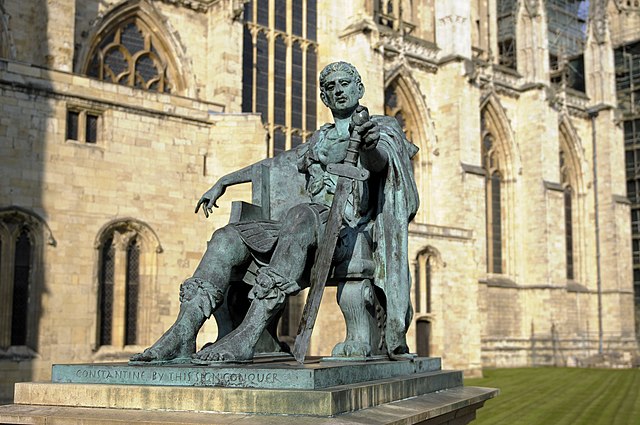Alcuin of York – also called Ealhwine, Alhwin, or Alchoin – was a scholar, clergyman, poet, and teacher from York, Northumbria. He was born around 735 and became the student of Archbishop Ecgbert at York. At the invitation of Charlemagne, he became a leading scholar and teacher at the Carolingian court, where he remained a figure in the 780s and 790s. Before that, he was also a court chancellor in Aachen. "The most learned man anywhere to be found", according to Einhard's Life of Charlemagne, he is considered among the most important intellectual architects of the Carolingian Renaissance. Among his pupils were many of the dominant intellectuals of the Carolingian era.
A Carolingian manuscript, c. 831. Rabanus Maurus (left), with Alcuin (middle), dedicating his work to Archbishop Odgar of Mainz (right)
Alcuin
Alcuin, roof figure, Museum of History of Arts, Vienna.
York is a cathedral city in North Yorkshire, England, with Roman origins, sited at the confluence of the rivers Ouse and Foss. It is the county town of Yorkshire. The city has many historic buildings and other structures, such as a minster, castle, and city walls. It is the largest settlement and the administrative centre of the wider City of York district.
Clockwise from the top left: Micklegate Bar; York Minster from the city walls; Lendal Bridge; an aerial view of the city; and the castle
Roman wall and the west corner tower of Eboracum. The top half is medieval.
Roman Emperor Constantine the Great proclaimed Emperor at York in 306 AD.
A panorama of 15th-century York by E. Ridsdale Tate; York Castle is on the right hand side of the river, opposite the abandoned motte of Baile Hill.






